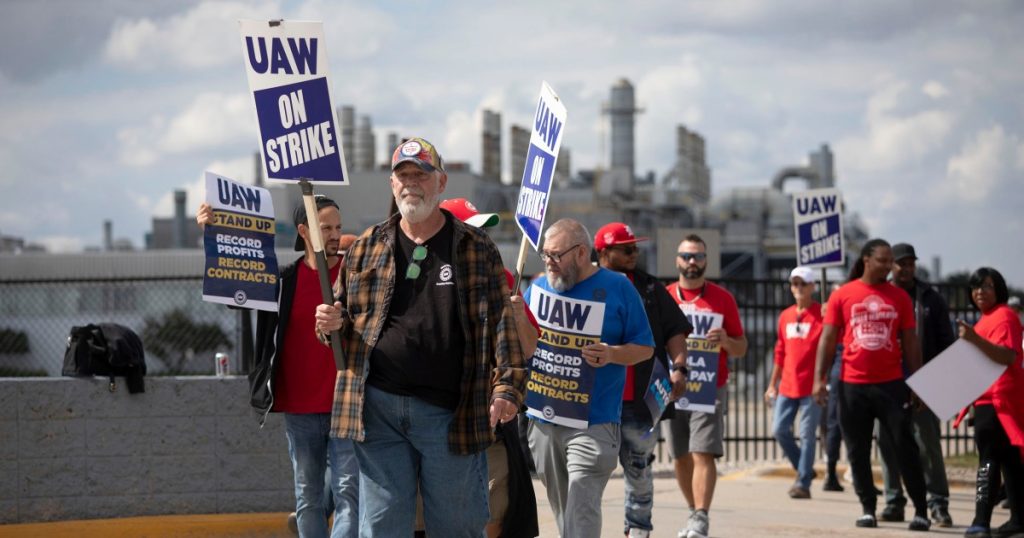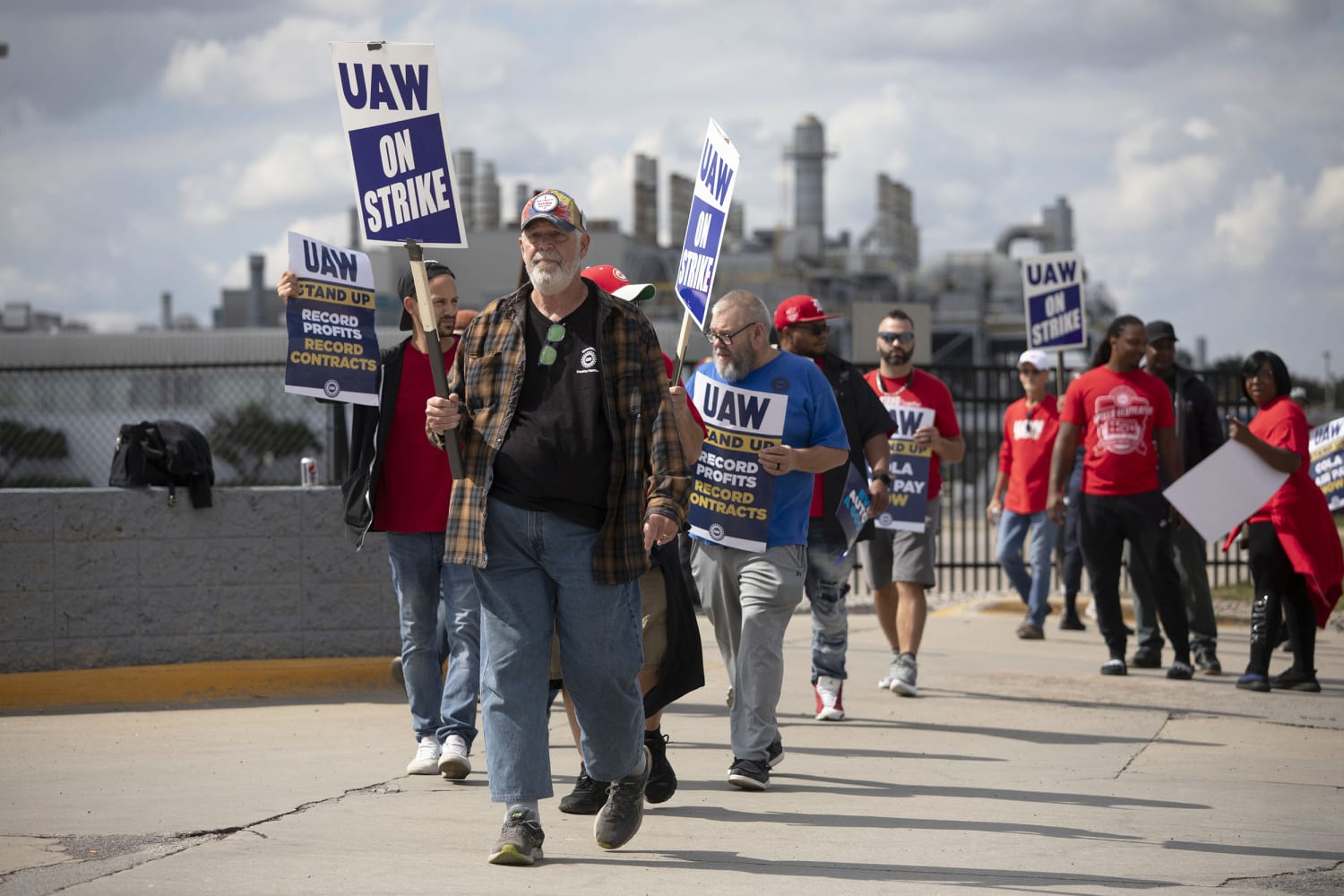

UAW president lashes out over threats of non-striking workers being laid off
UAW President Shawn Fain said threats of layoffs of non-striking workers is the Big Three’s “latest attack” to get union members to “settle for less.”
GM threatened to lay off 2,000 workers at a plant in Fairfax, Kansas, blaming the strike in Wentzville, Missouri. The automaker said it would be unable to provide those workers with supplemental unemployment benefits because the contract with the union expired.
Ford said it had already laid off 600 workers at a facility in Wayne, Michigan because there was no work for them due to the strike.
Fain said the threats won’t work.
“Let’s be clear: if the Big Three decide to lay people off who aren’t on strike, that’s them trying to put the squeeze on our members to settle for less. With their record profits, they don’t have to lay off a single employee,” he said in a statement Saturday.
Fain said the companies could still make billions of dollars even if they doubled the pay of every worker and kept car prices the same.
“The UAW will make sure any worker laid off in the Big Three’s latest attack will not go without an income,” he said. “We’ll organize one day longer than they can, and go the distance to win economic and social justice at the Big Three.”
Obama calls on Big Three automakers to ‘do right’ by their workers
Former President Barack Obama said the Big Three automakers need to “do right” by their workers.
“Fourteen years ago, when the big three automakers were struggling to stay afloat, my administration and the American people stepped in to support them. So did the auto workers in the UAW who sacrificed pay and benefits to help get the companies back on their feet,” he said in a statement Saturday on X, formerly known as Twitter.
“Now that our carmakers are enjoying robust profits, it’s time to do right by those same workers so the industry can emerge more united and competitive than ever,” he continued.
The auto workers strike will drive up car prices, but not right away — unless consumers panic
DALLAS — Car shoppers are heading for a new round of sticker shock if the strike by the United Auto Workers doesn’t end soon, particularly for popular vehicles already in short supply.
The number of vehicles on dealer lots will shrink the longer the walkout goes on. Dealers are likely to lose incentives that the manufacturers pay them to boost sales by cutting prices.
And consumers might make things worse with panic buying.
Many analysts think it will take several weeks before dealer lots start to look a bit empty. Ford, General Motors and Stellantis built up inventories of vehicles ahead of Thursday night’s strike, and the UAW decided to limit the walkout to just three plants — at least for now.
“Guys at the dealerships are going to tell you, ‘The UAW this and that,’ but their lots are full of cars now,” says Ivan Drury, the director of insights at Edmunds, a provider of information about the auto industry. He estimates that at current inventory levels and the pace of vehicle sales, most car shoppers shouldn’t notice much change for a couple of months.
Auto worker strike creates test of Biden’s goals on labor and climate
WASHINGTON — Two of President Joe Biden ‘s top goals — fighting climate change and expanding the middle class by supporting unions — are colliding in the key battleground state of Michigan as the United Auto Workers go on strike against the country’s biggest car companies.
The strike involves 13,000 workers so far, less than a tenth of the union’s total membership, but it’s a sharp test of Biden’s ability to hold together an expansive and discordant political coalition while running for reelection.
Biden is trying to turbocharge the market for electric vehicles to reduce greenhouse gas emissions and prevent China from solidifying its grip on a growing industry. His signature legislation, known as the Inflation Reduction Act, includes billions of dollars in incentives to get more clean cars on the roads.
However, some in the UAW fear the transition will cost jobs because electric vehicles require fewer people to assemble. Although there will be new opportunities in the production of high-capacity batteries, there’s no guarantee that those factories will be unionized and they’re often being planned in states more hostile to organized labor.
“The president is in a really tough position,” said Erik Gordon, a professor at the University of Michigan’s Ross School of Business. “What he needs to be the most pro-labor president ever and the greenest president ever is a magic wand.”
The union is demanding steep raises and better benefits, and it’s escalating the pressure with its targeted strike. Brittany Eason, who has worked for 11 years at the Ford Assembly Plant in Wayne, Mich., said workers are worried that they’ll “be pushed out by computers and electric vehicles.”
“How do you expect people to work with ease if they’re in fear of losing their jobs?” said Eason, who planned to walk the picket line this weekend. Electric vehicles may be inevitable, she said, but changes need to be made “so everybody can feel secure about their jobs, their homes and everything else.”
 Latest Breaking News Online News Portal
Latest Breaking News Online News Portal





